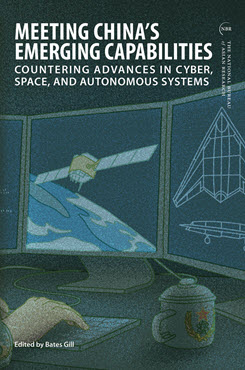Essay from NBR Special Report no. 103
Philippine Security Implications from China’s Autonomous, Cyber, and Space Weapons Systems
This essay explores the implications of the use of established and emerging technologies by the People’s Republic of China (PRC), the Philippines’ limited response in countering the PRC’s activities, and opportunities for enhancing cooperation with the United States.
EXECUTIVE SUMMARY
MAIN ARGUMENT
The PRC’s efforts to harness the advantages of established and emerging technologies pose a serious threat to the national security of the Philippines. The PRC’s autonomous weapons systems, while still underdeveloped, can enhance the scope and effectiveness of air and maritime operations in the South China Sea. Its cyber capabilities have been instrumental in collecting national security secrets of different states in the region. Finally, the PRC’s evolving space and counterspace weapons signal the country’s technological superiority over weaker states. Given the security implications of the PRC’s use of autonomous, cyber, and counterspace weapons, the Philippines needs to leverage its alliance with the U.S. if it intends to increase its capacity to defend against complex Chinese threats.
POLICY IMPLICATIONS
- The Philippines should leverage its alliance with the U.S. to counter the security threats posed by the PRC.
- The U.S. can help the Philippines’ defense posture by focusing military assistance on enhancing intelligence, surveillance, and reconnaissance capabilities and strengthening the land-based missile forces.
- The U.S. can support the Philippines’ engagement with international institutions by collaborating on the promotion of cyber norms and agreeing on a common position regarding autonomous weapons systems.
Francis C. Domingo is Associate Professor of International Studies at De La Salle University in Manila.



